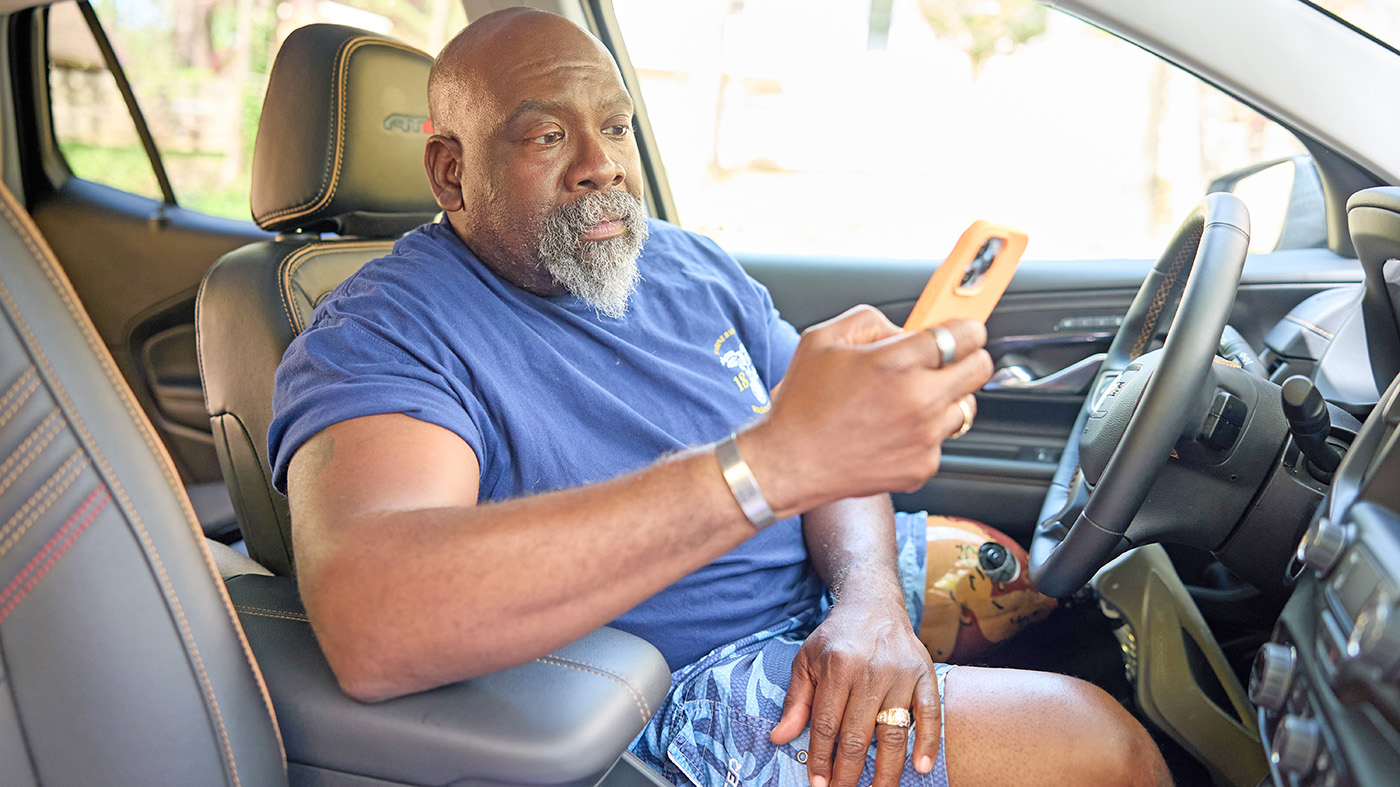June 27 is PTSD Screening Day. VA encourages Veterans to get screened for posttraumatic stress disorder (PTSD) any time they experience symptoms that could be related to PTSD and seek treatment if needed.
Veterans who would like to know more about PTSD and how to address it can explore VA’s virtual resources below.
What to do if you have PTSD
If you think you may have PTSD, the National Center for PTSD has a self-screen tool to determine helpful resources to support you. While it is not meant to diagnose PTSD (only a health professional can do that), it’s a way to discuss the next steps with your VA care team.
The PTSD Decision Aid can help you figure out the best form of therapy for you.
“There’s a comparison chart to help you explore options so you can work with your care team to decide what treatment is right for you,” said Dr. Sadie Larsen, psychologist at the National Center for PTSD.
Learn more about PTSD and how to treat it
How do you make sense of the information out there about PTSD? Check out videos with hand-drawn images that explain PTSD and ways to treat it.
The PTSD Bytes podcast discusses PTSD topics and virtual resources in 10-15 minute “bite-sized” episodes. You can also read the show notes, which have links to resources.
Access PTSD virtual support tools
The PTSD Coach app provides information about PTSD and tools to help address symptoms. Veterans who may not have a mobile device can try PTSD Coach Online, which comes with downloadable worksheets and checklists that cover managing stress, sleeping better and more.
Apps like PE Coach, CPT Coach and ACT Coach are considered treatment companions, enhancing your therapy sessions with a care professional, while others like the Insomnia Coach and Safety Plan apps may help you address related issues on your own. None of the apps replace treatment, but they can connect you to support resources like the Veterans Crisis Line.
Virtual resources for Veterans and family members
Supporting a family member with PTSD is not something you have to do alone. VA’s support resources like the PTSD Family Coach app and the CRAFT-PTSD online course focus on ways family members can take care of themselves and encourage loved ones to seek treatment.
If you’re experiencing PTSD-related stresses like relationship issues, financial difficulties and others, the Moving Forward course helps Veterans gain skills to enhance resilience and optimism. Veterans can take the course on their own or work with a VA care professional.
Watch Veterans’ personal stories
Find solace in watching other Veterans’ experiences with PTSD on AboutFace. Another site, Make the Connection, also shares stories of Veterans who’ve faced challenges with their mental well-being to encourage you in your wellness journey. VA provides a variety of PTSD resources to help you in your mental wellness journey. To learn more about taking the next step, visit the National Center for PTSD. For more information on telehealth resources, visit the VA Telehealth Services page.
Topics in this story
Link Disclaimer
This page includes links to other websites outside our control and jurisdiction. VA is not responsible for the privacy practices or the content of non-VA Web sites. We encourage you to review the privacy policy or terms and conditions of those sites to fully understand what information is collected and how it is used.
More Stories
Dorothy “Pat” Rudd, 103, World War II Navy Veteran, has lived a life of service, pioneering the way for women in the military.
VA employees help return WWII items to two brothers’ families. Both brothers were WWII Veterans.
The Veterans self-check assessment takes about 10 minutes to complete and has resources that can help if stress and depression are affecting you.






But you still don’t offer one on one weekly talk psychotherapy for it! Nor do you let us use Community Care services for it. When we’ve been through numerous VA alphabet soup therapies & still need help, how about letting us use Community Care services?
Hi Julia,
I’m not sure where U live, so I cannot comment on the different resources that U may have, however, I was able to get a ‘talk therapist’ through Community Care services in Mass.
It took almost a year, and I was so depressed, but eventually it worked out. Now, I talk/ or see someone every wk, and my symptoms of PTSD are still there, but I am working through them.
Julia, I can only suggest to keep advocating for yourself, as well as other Veterans to receive the mental health care that U, me and others really need.
At the VA that U go to, Call the Psychiatric dept and the Community Care, every day if U have to, and the politicians in your area, and continue to tell them what U need is ‘talk therapy’.
Write letters, and find an advocate like your VA PCP, and tell them all that U know what U need, and it’s ‘talk therapy’. The VA needs to provide us with the care that we need.
I know that it seems like I’m giving U homework, and that’s the last thing that U want to do with PTSD, but it’s the only way for things to change.
I hope and pray that my suggestions are helpful to you,
Crystal